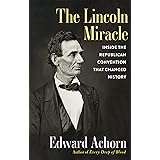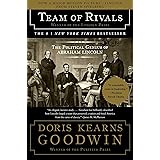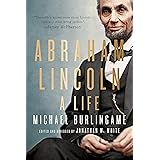
Enjoy fast, free delivery, exclusive deals, and award-winning movies & TV shows with Prime
Try Prime
and start saving today with fast, free delivery
Amazon Prime includes:
Fast, FREE Delivery is available to Prime members. To join, select "Try Amazon Prime and start saving today with Fast, FREE Delivery" below the Add to Cart button.
Amazon Prime members enjoy:- Cardmembers earn 5% Back at Amazon.com with a Prime Credit Card.
- Unlimited Free Two-Day Delivery
- Streaming of thousands of movies and TV shows with limited ads on Prime Video.
- A Kindle book to borrow for free each month - with no due dates
- Listen to over 2 million songs and hundreds of playlists
- Unlimited photo storage with anywhere access
Important: Your credit card will NOT be charged when you start your free trial or if you cancel during the trial period. If you're happy with Amazon Prime, do nothing. At the end of the free trial, your membership will automatically upgrade to a monthly membership.
Buy new:
-50% $13.89$13.89
Ships from: Amazon Sold by: Booksiumm
Save with Used - Good
$8.78$8.78
Ships from: Amazon Sold by: S&H Assorted Goods





Download the free Kindle app and start reading Kindle books instantly on your smartphone, tablet, or computer - no Kindle device required.
Read instantly on your browser with Kindle for Web.
Using your mobile phone camera - scan the code below and download the Kindle app.

OK
 Audible sample Sample
Audible sample Sample 


Every Drop of Blood: The Momentous Second Inauguration of Abraham Lincoln Hardcover – Illustrated, March 3, 2020
Purchase options and add-ons
A brilliantly conceived and vividly drawn story―Washington, D.C. on the eve of Abraham Lincoln’s historic second inaugural address as the lens through which to understand all the complexities of the Civil War
By March 4, 1865, the Civil War had slaughtered more than 700,000 Americans and left intractable wounds on the nation. After a morning of rain-drenched fury, tens of thousands crowded Washington’s Capitol grounds that day to see Abraham Lincoln take the oath for a second term. As the sun emerged, Lincoln rose to give perhaps the greatest inaugural address in American history, stunning the nation by arguing, in a brief 701 words, that both sides had been wrong, and that the war’s unimaginable horrors―every drop of blood spilled―might well have been God’s just verdict on the national sin of slavery.
Edward Achorn reveals the nation’s capital on that momentous day―with its mud, sewage, and saloons, its prostitutes, spies, reporters, social-climbing spouses and power-hungry politicians―as a microcosm of all the opposing forces that had driven the country apart. A host of characters, unknown and famous, had converged on Washington―from grievously wounded Union colonel Selden Connor in a Washington hospital and the embarrassingly drunk new vice president, Andrew Johnson, to poet-journalist Walt Whitman; from soldiers’ advocate Clara Barton and African American leader and Lincoln critic-turned-admirer Frederick Douglass (who called the speech “a sacred effort”) to conflicted actor John Wilkes Booth―all swirling around the complex figure of Lincoln.
In indelible scenes, Achorn vividly captures the frenzy in the nation’s capital at this crucial moment in America’s history and the tension-filled hope and despair afflicting the country as a whole, soon to be heightened by Lincoln's assassination. His story offers new understanding of our great national crisis and echoes down the decades to resonate in our own time.
- Print length336 pages
- LanguageEnglish
- PublisherAtlantic Monthly Press
- Publication dateMarch 3, 2020
- Dimensions6.5 x 1.25 x 9.25 inches
- ISBN-100802148743
- ISBN-13978-0802148742
Books with Buzz
Discover the latest buzz-worthy books, from mysteries and romance to humor and nonfiction. Explore more
Frequently bought together

Similar items that may ship from close to you
From the Publisher

|
|
|
|
|---|---|---|
|
|
|
|
Editorial Reviews
Review
An Amazon Best Book of the Month (History)
“Richly detailed . . . In elegant, episodic detail, Mr. Achorn captures both the immediate experiences of those who attended the inaugural and the recent memories that colored everything they saw and felt, heard and said.”―Adam Rowe, Wall Street Journal
“A lively guided tour of Washington during the 24 hours or so around Lincoln’s swearing-in . . . Achorn has a journalist’s gift for finding just the right quotation. He deftly fishes memorable descriptions―often less-than-flatting ones―out of 19th-century newspapers and diaries, especially as he introduces the most distinguished residents of the nation’s capital.”―Adam Goodheart, Washington Post
“A fascinating account of an address which entered the national consciousness . . . Achorn has done Lincoln justice, distilling the essence of the speech in a reflection Lincoln would have understood.”―John S. Gardner, Guardian
“An exemplary account of this critical moment in Lincoln’s presidency . . . [Achorn’s] book captures not only the true essence of this dramatic and traumatic time period in American history, but also the metamorphosis of a presidential inauguration that should be read and cherished by all Americans . . . Achorn’s innate ability to weave memorable stories and personalities together in Every Drop of Blood creates an intimate tale for readers. More impressively, it leads to a new chapter in this great president’s life that will stand the test of time.”―Washington Times
“A masterful narrative of the day, weaving together a cast of characters and events in a compelling work that reads like hands-on reportage from a writer who was on the scene. Achorn magnifies his writing with fresh research, including personal recollections by eyewitnesses and newspaper accounts of the day . . . Achorn’s work is as epic as the topic deserves. His research is remarkable, telling the wider story through minute details and moments of deep meaning . . . A welcome addition to the voluminous canon of Lincoln books. Through these pages Achorn transforms readers into spectators of history as it unfolds.”―New York Journal of Books
“Every Drop of Blood, despite the imagery of its title, isn’t about battles. Its primary focus is on Friday, March 3, and Saturday, March 4, 1865, the day before and the day of Lincoln’s second inauguration, and the speech he would deliver that day . . . Achorn analyzes the speech as an artifact of its time and author. He tracks its imagery and explores how and why Lincoln chose the words he used . . . A good read in our own era, reminding us that no matter how badly divided we feel now, as a nation we’ve been through worse.”―Providence Journal
“Its strength lies less in the events themselves than in the elaborate detail and rich historical context that he musters . . . By the end, as well as mourning Lincoln’s fate, American readers might wish for another chance at politics without malice and with charity to all.”―Economist
“Invaluable . . . A small masterpiece, brilliant in concept and exquisite in execution . . . With skill and massive research, Achorn brings it all into one place on one day for us to see, feel, and ponder.”―InsideSources
“Wholly unique, compelling, and revealing . . . Essential reading about the doomed president’s final days in office and the bloody end of the Civil War . . . A significant achievement.”―Times-News
“Achorn’s rich, polyphonic history covers the sumptuous social events as well as the prisoners of war on the muddy streets and the injured languishing in ill-prepared hospitals.”―National Book Review
“Drawing on historical wizardry―diaries, accounts, and memoirs―Achorn has assembled a prismatic portrait of that fateful day which reads like one long rolling dolly shot of history.”―Literary Hub
“Meticulously chronicles President Lincoln’s March 1865 inauguration in this kaleidoscopic history. Drawing from diaries, letters, memoirs, and newspaper reports, Achorn frames a poignant yet familiar portrait of Lincoln with the accounts of several figures who converged in Washington, D.C., for the inaugural address . . . He skillfully plumbs his sources for colorful details and draws memorable character sketches. History buffs will savor this evocative narrative.”―Publishers Weekly
“The author provides rich description of a wide cast of people, including politicians, poets, soldiers, and nurses . . . Achorn is especially insightful in setting the scene for the inaugural, going deep inside the social world of the capital and remarking on the constant positioning for favor or notice . . . A solid history that will allow readers to feel as if they are in the moment.”―Library Journal
“A vigorous, fresh look at a critical time in American history.”―Kirkus Reviews
“Achorn provides a rich, heavily psychological portrait [of Lincoln] . . . A moving chronicle of the country on the eve of assassination.”―Booklist
“It is hard to imagine anyone saying anything new about Abraham Lincoln, the most written-about figure in American history. But Edward Achorn has done it. No one has ever placed Lincoln’s Second Inaugural in such a full and rich context as he has. Achorn recreates the sights, sounds, smells, and the feel of everything, and his Lincoln was never more real. This is the work of a superb imaginative historian.”―Gordon S. Wood, Pulitzer Prize-winning author of Empire of Liberty
“This richly detailed account of the events surrounding Lincoln’s second inaugural address focuses on the many notable and obscure personalities present in Washington as the Civil War neared its end, including such opposites as Frederick Douglass and John Wilkes Booth, whose lives intersected with Lincoln’s in dramatically contrasting ways.”―James M. McPherson, Pulitzer Prize-winning author of Battle Cry of Freedom
“A lively, highly readable account of the people, events―and threats―surrounding Lincoln’s second inauguration.”―Joanne Freeman, author of The Field of Blood: Violence in Congress and the Road to Civil War
“Prize-worthy. Achorn is erudite and empathetic, and the book is chock-full of information and telling insights. Achorn sets the scene for the greatest inaugural address in American history.”―Frank J. Williams, founder of The Lincoln Forum and author of Judging Lincoln
“A magisterial analysis not only of Lincoln’s second inaugural but of the context in which it was given. Achorn’s keen eye for the meaningful detail reveals new layers of meaning to both a familiar speech and the divided nation that received them. His gift for telling a good story makes it a must-read for historians and general readers alike.”―Maury Klein, author of Days of Defiance and A Call to Arms
About the Author
Product details
- Publisher : Atlantic Monthly Press; Illustrated edition (March 3, 2020)
- Language : English
- Hardcover : 336 pages
- ISBN-10 : 0802148743
- ISBN-13 : 978-0802148742
- Item Weight : 1.45 pounds
- Dimensions : 6.5 x 1.25 x 9.25 inches
- Best Sellers Rank: #747,472 in Books (See Top 100 in Books)
- #902 in American Civil War Biographies (Books)
- #999 in Civil Rights & Liberties (Books)
- #1,592 in US Presidents
- Customer Reviews:
About the author

Edward Achorn, a Pulitzer Prize finalist for Distinguished Commentary, is the deputy editorial pages editor of The Providence (R.I.) Journal. (Reach him at eachorn@projo.com and please check out www.EdwardAchorn.com). He has won numerous writing awards and his work appears in Best Newspaper Writing, 2007-2008 (CQ Press). Achorn's reviews of books about American history appear frequently in the Weekly Standard.
Achorn's "must read" weekly columns sometimes touch on baseball history, but usually center on the weird and contentious politics of Rhode Island. He inspired revolutionary change in the state's Constitution, championing an amendment that balanced power and put an end to a 340-year legacy of inordinate control by the legislature. Pulitzer judges cited his "clear, tenacious call to action against government corruption in Rhode Island," while Common Cause Rhode Island declared: "Ed Achorn's clear trumpet turned the tide in this historic battle."
A diehard Red Sox fan descended from generations of baseball cranks, Achorn grew up in Westborough, Mass. He attended the 1967 World Series, witnessed Carl Yastrzemski's 3,000th hit and saw all four games of the legdenday 1975 World Series at Fenway Park, including Game Six, when Carlton Fisk "waved" his home run fair. His grandfather and grandmother, both Boston Braves fanatics, attended the 1914 World Series (also at Fenway).
As a child in Westborough, Ed was astonished to discover that the nearby city of Worcester once had a major-league baseball team. Thus began a lifelong quest to learn more about 19th century baseball--to put flesh on the strange names and statistics found in the Baseball Encyclopedia, none more incredible than Radbourn's 59 wins in one season.
He quickly found there was much more to the story than has yet appeared in books. His intensive search took him to the Library of Congress, the Baseball Hall of Fame Library, the Chicago Historical Society, the Rhode Island Historical Society, and numerous other institutions where he pored over primary sources and thousands of daily accounts of baseball in period newspapers. He also spent many nights hunched over a microfilm reading machine in the newspaper's library and at the Rhode Island Historical Society. (An original painting of the Hoss hangs in his fourth-floor office.)
He has worked closely with the members of the Providence Grays Vintage Baseball Club, a modern team that plays under 1884 rules and with 1884 equipment (or lack thereof), to better understand the experience of baseball in those times.
He lectures about the major-league Providence Grays and Rhode Island corruption as a featured speaker for the Rhode Island Council for the Humanities. He is a member of SABR, the Society for American Baseball Research.
Customer reviews
Customer Reviews, including Product Star Ratings help customers to learn more about the product and decide whether it is the right product for them.
To calculate the overall star rating and percentage breakdown by star, we don’t use a simple average. Instead, our system considers things like how recent a review is and if the reviewer bought the item on Amazon. It also analyzed reviews to verify trustworthiness.
Learn more how customers reviews work on AmazonReviews with images
-
Top reviews
Top reviews from the United States
There was a problem filtering reviews right now. Please try again later.
This book is impressive in the depth and width of the research. Every page informs and entertains the reader. The story flows and builds to its sad conclusion. The portrayals of the cabinet members, members of Congress, and the everyday citizens who walk through these momentous events are just as appealing.
The American Civil War was surely fought to the last drop of blood. The author breathes life into this story, the period before the events of the second Lincoln Inauguration. Up to the inevitable sad conclusion of the assassination of President Lincoln, the author masterfully brings us into the story and we are entertained, informed, and we are enriched by it.
However, the book is fascinating because you are totally immersed socially, politically, and reflectively in a two day moment in history up close and personal with many of the important players. The writing is vivid and you come away feeling and thinking almost as if you had actually been there. Mr. Achorn stands back enough to let many of the players speak for themselves without editorializing. The intensity of this seminal time in American history comes through clearly. You come away feeling that you have actually met many people you know of from history and a number of others you may not have heard of. The human element is quite palpable.
I think the book is important because it reveals the complexity and fervor of opinion that marked the era. If anything the book does shed some light on why it may have been impossible for the states to agree together on a program to peacefully wean the nation from slavery. The war didn't eliminate the fact that this would necessarily be a long and costly project. The cost of the war in blood and treasure still seems an outrageous waste. I have been noticing now that whenever the topic of the war comes up people are inclined to think of it only in the simplistic, one-dimensional, and ignorant racial political narratives that are mindlessly stoked in the present. This is not helpful. The prefatory years, the war, and the aftermath are a very profound study in human nature and politics. Americans should know the history of this time well because it continues to define us in many ways. It is a time that will always demand our careful and sober reflection. This book is a worthwhile contribution to our national memory.
We get glimpses into the people and personalities that surrounded the President - Frederick Douglass, John Wilkes Booth, and many others. It catalogues the diversity of opinion among citizens of both the North and the South, gleaned from newspaper accounts and individual, personal diaries and journals.
Some may find the opinions of seemingly insignificant characters unimportant, but they are helpful in understanding the climate of the time and the pains brought about by the war that divided the country.
Readers may gain valuable insights into the present. Many of the same divisions still exist, specifically around the issue of race, which is the unfortunate but enduring legacy of slavery.
Achorn packs a lot into relatively few pages, which sometimes makes the story hard to follow. But at certain intervals, the author pauses to do a deeper exploration into certain aspects of Lincoln's personality, which shaped him into the larger than life character he has become.
Chapter Six, for example, "Public Sentiment Is Everything," is devoted to Lincoln's meticulous writing, his fascination with words, and painstaking labor to express his ideas and thoughts clearly.
He was also avidly devoted to reading Scripture, a characteristic sorely lacking in political leaders today. Though both supporters and detractors saw Lincoln as a crafty politician, more motivated by public opinion, Scripture was also an important and informing factor in determining many of his decisions.
Any book on Lincoln leaves me wondering what if: what would this country be like today had he lived to carry out his plans for Reconstruction?
After this one, I still have the same gnawing question.
















